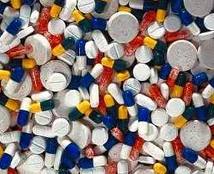Enjoyment
Despite all the concerns about illicit drug use and the attendant lifestyle by young people, it is probably still the case that the lives of most young people are centred on school, home and employment and that most drug use is restricted to the use of tobacco and alcohol They may adopt the demeanour, fashion and slang of a particular subculture including the occasional or experimental use of illegal drugs without necessarily adopting the lifestyle.
Even so, the evidence of drug use within youth culture suggests that the experience of substances is often pleasurable rather than negative and damaging. So probably the main reason why young take drugs is that they enjoy them.
Environment
Many young people live in communities which suffer from multiple deprivation, with high unemployment, low quality housing where the surrounding infra-structure of local services is fractured and poorly resourced. In such communities drug supply and use often thrive as an alternative economy often controlled by powerful criminal groups. As well as any use that might be associated with the stress and boredom of living in such communities, young people with poor job prospects recognise the financial advantages and the status achievable through the business of small scale supply of drugs.
However, drug use is certainly not restricted to areas of urban deprivation. As the press stories of expulsions from private schools and drug use in rural areas show, illicit drug use is an aspect of our society from top to bottom and in all regions.
Curiosity
Most young people are naturally curious and want to experiment with different experiences. For some, drugs are a good conversation point, they are interesting to talk about and fascinate everyone.
The defence mechanism
Some young people will use drugs specifically to ease the trauma and pain of unsatisfactory relationships and the physical and emotional abuse arising from unhappy home lives. Such young people will often come to the attention of the school. If these problems can be addressed, then if drugs are involved they can become less of a problem.
Natural rebellion
Whether or not part of any particular subset of youth culture, young people like to be exclusive, own something that is personal to themselves and consciously or unconsciously drug use may act as a means of defiance to provoke adults into a reaction.
Promotion and availability
There is considerable pressure to use legal substances alcohol and pain- relieving drugs are regularly advertised on television. The advertising of tobacco products is now banned on television, but recent research from Strathclyde University published by the Cancer Research Campaign concluded that cigarette advertising does encourage young people to start smoking and reinforces the habit among existing smokers.
Despite legislation, children and teenagers have no problems obtaining alcohol and tobacco from any number of retail outlets; breweries refurbish pubs with young people in mind, bringing in music, games, more sophisticated decor and so on while the general acceptance of these drugs is maintained through sports sponsorship, promotions and other marketing strategies.Obviously, the illicit market is more discreet, but those determined to experiment appear to have little trouble obtaining drugs.
Cost
Value for money is often a factor as to which drug to use. Cannabis sufficient for a few joints would cost about £5, while an LSD trip would be around £2.50. In terms of how long the effects last, this compares very favourably with an average price for a pint of lager of around £1.80. By the same token, ecstasy of highly variable quality is still selling for up to £15 a tablet and many drug users have been voting with their wallet and turning to cheaper drugs such as LSD and amphetamine.









No comments:
Post a Comment